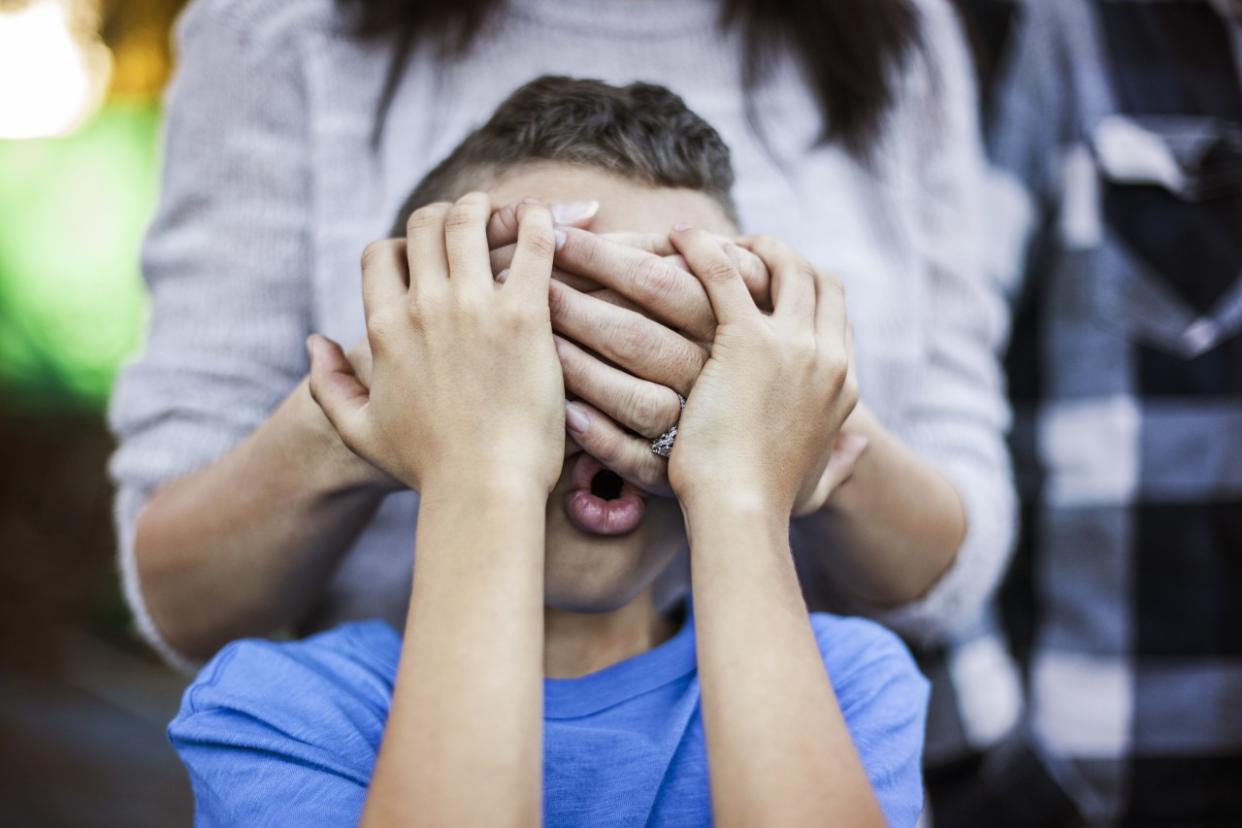Why Are Parents So Hung Up Over Sex — Instead of Violence?

I can still remember the major fights I had with my mom in adolescence over two movies she forbade me to see: Porky’s, the raunchy sex comedy, and the now iconic Flashdance, both from the early ’80s. It seemed that everyone else in the entire school was allowed to see both movies, and I screamed and cried and begged to join them — and even snuck in glimpses of Porky’s, sound down low, when it ran at crack-of-dawn times on our newly purchased Cinemax service. But I never managed to make it to the good parts before my sleepy-eyed, keen-eared mother appeared in the room.
Meanwhile, the list of graphically violent horror films I’d seen was long and growing: Halloween, Parts 1, 2, and 3; Friday the 13th, Parts 1, 2, and 3; Poltergeist; The Exorcist; The Omen. By the age of 12, I’d seen horrific images of people slashed in the neck, stomach, and face with axes and hunting knives; I’d seen others shoved to the ground from high balconies, decapitated with a machete, shot in the face with a gun.
STORY: No, We Don’t Want to Talk to Our Kids About Mass Shootings
Now, looking back, I find my mom’s fierce need to shield me from sex-themed flicks over those based around gory violence to be oddly curious. Not that I disagree about her not wanting me to see sexy movies at such a young age — but why not at least shun the killings with equal vigilance?
Still, she was far from alone in her belief about what could be most harmful — and is still not alone today, despite the fact that we know vastly more about the impacts of violent imagery on children than we did three decades ago: According to the findings of a new survey, sexual content and nudity in movies are the top concerns for parents, while violence is less so.
STORY: The Violent Truth About Kids’ Movies
The findings are part of the 2015 Parents Ratings Advisory Study commissioned by the Classification & Rating Administration. And here’s what parents said about the movies their kids see: They are most worried about graphic sex scenes (80 percent), followed by full male nudity (72 percent), use of hard drugs (70 percent), and full female nudity (70 percent). Only then does the concern about graphic violence pop up, with 64 percent calling it a concern; a separate category called “horror violence” worries just 59 percent of parents surveyed.
Meanwhile, a mass shooting takes place at least once a day in America, according to ShootingTracker. Lockdown drills requiring 4-year-olds to practice silently cowering in coat closets are now a routine part of the school culture. And the body of evidence linking media violence to the real thing later in life is growing. And although there’s a lack of studies showing whether watching violent media directly leads to committing extreme violence, the surgeon general, the National Institute of Mental Health, and organizations including the American Medical Association, the American Psychiatric Association, and the American Psychological Association still consider exposure to media violence a risk factor for actual violence.
So why on earth is exposure to media sexuality so much scarier for parents to deal with? It’s certainly not surprising in a culture that routinely slut-shames women for being sexual, confuses breastfeeding an infant with public striptease, and believes that promoting ignorance and abstinence is a suitable solution to teen pregnancy and STDs — all while fighting tooth and nail against enacting federal gun laws that could immediately begin saving lives. But how does it make any sense?
“Violence has been normalized in entertainment, and parents have grown up with those images and think, ‘Well, I haven’t killed anyone,’” Diane Levin, professor of education at Wheelock College in Boston and an expert on the effects of media on children, explains to Yahoo Parenting. “It’s easy to tell your kid that the violence is just pretend and to say, ‘Violence is bad. We have to find other ways to solve problems, OK?’ But talking about sex is much harder — it’s blurrier and more complicated,” she says. And because parents are afraid that their kids will get involved with sex too soon if they see it onscreen, she adds, they often choose to simply ban or avoid it.
“The culture-wide acceptance of violence over sex deserves some critical attention,” noted Tracy Clark-Flory in a Salon article, now several years ago, reacting to the Supreme Court’s rejection of an attempt to ban the sale of violent video games to minors. The majority ruled that federal obscenity law applies only to depictions of “sexual conduct” and not to scenes that are “shocking” for other reasons, like extreme violence.
“What it really comes down to is that, as Justice Samuel Alito wrote, ‘For better or worse, our society has long regarded many depictions of killing and maiming as suitable features of popular entertainment, including entertainment that is widely available to minors,’” Clark-Flory writes. “Killing and maiming? Bring it on! But nudity or ‘sexual conduct’? Good heavens no — we are a civilized people.”
Even now — with more than 350 mass shootings on record for 2015 alone — that still seems to be the common thinking. At least according to the 80 percent of parents surveyed, who, unbelievably, find sex more fearful than death.
(Top photo: Corbis Images)
Please follow @YahooParenting on Facebook, Twitter, Instagram, and Pinterest. Have an interesting story to share about your family? Email us at YParenting (at) Yahoo.com.



